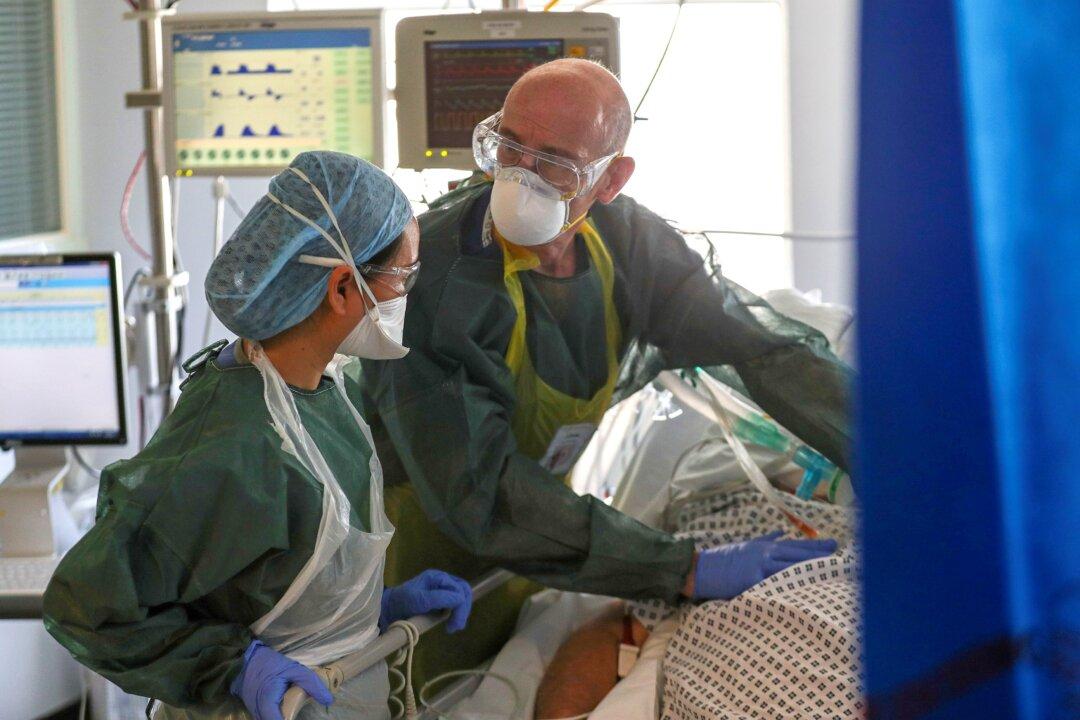A study of healthcare staff working in Intensive Care Units has shown that 58.8 percent reported “good wellbeing,” despite facing potential challenges to their mental health amid the CCP virus pandemic.
The challenges faced by the Intensive Care Unit (ICU) staff ranged from long shifts, in some cases a lack of PPE (Personal Protective Equipment), and a “regular exposure to ethical dilemmas with the consequential risk of moral injury.”





